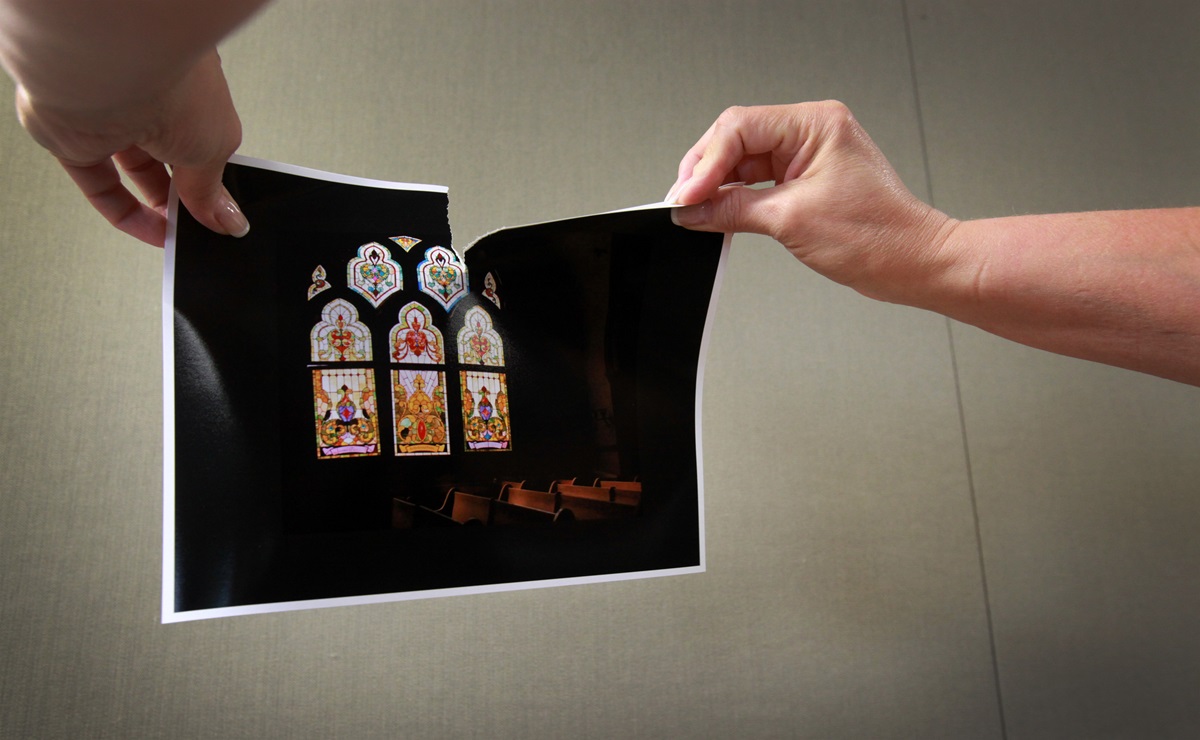The United Methodist Church is not the first Christian body to deal with the potentially church-splintering debate over homosexuality and biblical interpretation.
As United Methodists prepare for the special General Conference on Feb. 23-26, they might learn from the experiences of their ecumenical partners, U.S. Episcopalians, Lutherans and Presbyterians. All have dealt with their own divides over the roles of LGBTQ Christians.
Chief among those lessons: All are still standing and doing ministry — and so are the new denominations that have struck out on their own. However, no denominational divorce is easy.
“When making comparisons to the journeys of our ecumenical partner churches, there are two main misconceptions currently being reported,” said the Rev. Jean Hawxhurst, ecumenical staff officer for the United Methodist Council of Bishops.
The first misconception, she said, is that people can draw a direct line between membership decline and debate about LGBTQ ordination and marriage. The second issue she sees is that the number of withdrawals from any given denomination are often exaggerated.
“One of the most important lessons we have learned from our ecumenical partner churches is that theological opinions and positions do not correlate with geographical location or ethnic background,” said Hawxhurst, who is also a General Conference delegate from the Kentucky Conference.
Here is an overview of other denominations’ experiences.
Episcopalians and Anglicans
The Episcopal Church grabbed national headlines with the 2003 election and consecration of Bishop Gene Robinson, the denomination’s first openly gay bishop.
Like United Methodists, Episcopalians have discussed human sexuality since at least the 1970s. In 1976, the denomination’s General Convention — the equivalent of General Conference — called for intentional study of sexuality.
That same year, The Episcopal Church also declared, “homosexual persons are children of God who have a full and equal claim with all other persons upon the love, acceptance and pastoral concern and care of the church.”
The Episcopal Church, like other mainline Protestant denominations, has seen its U.S. membership shrink since the late 1960s. Still, losses did accelerate for a time after Robinson’s rise to bishop. Between 2003 and 2013, the denomination saw its total baptized membership drop by 17.4 percent.
Since then, The Episcopal Church has opened the marriage rite to same-sex couples as well as opposite-sex couples. Last year, its General Convention voted to leave the question of same-sex marriage up to individual clergy instead of their bishop.
The rate of decline also has slowed. Between 2016 and 2017, The Episcopal Church saw its membership decrease by 1.9 percent to about 1.7 million. In 2017, more than 1,400 of the denomination’s 6,447 congregations reported growth of at least 10 percent in the past five years.
“Although there were people within and outside The Episcopal Church who predicted a large schism after 2003, the actual number of members who left their congregations or dioceses was quite small,” said the Rev. Canon C. K. Robertson, who works with the presiding bishop on ministry beyond The Episcopal Church. Robertson has been working with United Methodists as the two denominations move toward full communion.
“In those five dioceses where the bishop and others did leave, there were others who stayed and continued to move forward,” he added.
The Anglican Church in North America officially separated from The Episcopal Church in 2009. Today, the denomination counts as members 132,000 Anglicans in 1,004 congregations across the United States, Canada and Mexico. Some of the leaders who established the new denomination not only differed with The Episcopal Church on homosexuality but also its ordination of women.
In recent years, both denominations have engaged in lawsuits over church property. The Episcopal Church, like The United Methodist Church, has a trust clause — meaning church property is held in trust for the larger religious body. Last year, the U.S. Supreme Court declined to review a trust clause case from South Carolina, leaving the property in Episcopal hands.
Lutherans
For the Evangelical Lutheran Church in America, 2009 was an eventful year. The denomination both approved full communion with The United Methodist Church and changed its policies related to homosexuality.
Specifically, its Churchwide Assembly voted to allow pastors to bless same-sex unions and permit churches to accept clergy and lay leaders in “publicly accountable,” “monogamous” same-gender relationships.
By “publicly accountable,” the denomination meant relationships with the highest level of recognition given by the state. As of 2015 in the U.S., that means marriage.
In any case, the denomination leaves whether to hold same-gender weddings or call a gay pastor in the hands of congregations.
Even before the policy changed, some congregations were leaving.
The Rev. Wm Chris Boerger, the denomination’s secretary, said the departures started with congregations unhappy with the ELCA’s 1999 full-communion agreement with The Episcopal Church.
Altogether, he estimates between 725 and 750 congregations withdrew. Today, the ELCA has more than 3.5 million baptized members in 9,252 congregations.
Some of the exiting churches helped start Lutheran Congregations in Mission for Christ — an international affiliation of 900 congregations started in 2001.
Still, others helped establish the North American Lutheran Church, which formed in 2010 and has more of the structure of a denomination. It jointly operates a seminary with the Anglican Church in North America.
The new denomination has 390 former ELCA congregations, 22 former Evangelical Lutheran Church in Canada congregations and 40 church plants, said Andrew S. Fuller, director of communications. The North American church has about 140,000 members.
About 100 churches and 200 pastors are dual rostered with both new Lutheran groups, Fuller added.
The ELCA has no trust clause. As long as congregations align with some Lutheran group, they can retain their property.
That has kept court cases to a minimum, both Fuller and Boerger said. However, Boerger added there were some lawsuits from church members who wanted their congregations to remain part of the ELCA.
Presbyterians
The Presbyterian Church (USA) has adopted policies similar to the proposed One Church Plan. On its website, the denomination says it has “sought to find ways to make space for members of the PC(USA) together to live out those differing views with integrity.”
In 2011, the majority of presbyteries — the denomination’s equivalent of annual conferences — ratified language that allows its ordaining bodies to ordain and/or install clergy and lay leaders who are in same-gender relationships on a case-by-case basis.
In 2014, the denomination’s General Assembly voted to allow individual clergy to officiate at same-sex weddings and congregational leadership to decide whether to hold such services.
Between 2012 and 2016, the Presbyterians saw about 100 congregations a year leave. Those losses abated in 2017, with 47 congregations dismissed to other church bodies. At the end of that year, the denomination had about 1.4 million members in 9,304 congregations.
Like Episcopalians and Lutherans, the Presbyterians also saw some departing churches form a new denomination — the Evangelical Covenant Order of Presbyterians, or ECO for short. Formed in 2012, it has 335 former PC(USA) congregations and 50 church plants.
ECO leaders are very clear that they left for reasons beyond changes in the stance on homosexuality, including other disagreements about theology and bureaucracy. In some cases, churches were able to make a financial settlement and leave with property. In other cases, property disputes have landed in court.
“While I don’t advocate for divisions and only as a last resort, I will say that I think it has allowed ECO churches to be more of who they are and live into their identity,” said the Rev. Dana Allin, ECO’s synod executive. “I have also seen PC(USA) churches have more freedom to live the way they feel called to live.”
The Rev. Robina Winbush, PC(USA) ecumenical officer, offered a similar perspective.
“The over 40-year-old struggle within the PC(USA) for full inclusion of Christians who understand themselves to be LGBTI+ has called us to discern in new ways who and how Christ is calling us to be in relationship to one another and with the wider world,” she said.
“While the struggle was extremely painful, once it was decided, it has allowed us to move forward with mission and ministry in new ways. It has allowed many within the PC(USA) to be authentic in their Christian identity and has allowed us to be in relationships with many who may not have been freely welcomed previously.”
None of the denominations that changed their policies on homosexuality track how many have joined their churches as a result of those changes. But leaders of each have anecdotal evidence of people who joined.
It’s also fair to say that all U.S. churches, including those that have taken a traditional approach, are struggling with the national trend of shrinking worship attendance and rising numbers of the religious nonaffiliated.
As United Methodists approach General Conference, Hawxhurst wants her fellow delegates to know they are held in prayer.
“There are Presbyterian, Episcopal, Lutheran, Catholic, Orthodox, Disciples, Baptist, United Church of Christ, and other brothers and sisters who are praying and fasting for God’s will in this General Conference, just as we are,” she said. “We are not alone in this discernment process, and that gives me both peace and hope.”
Hahn is a multimedia news reporter for United Methodist News Service. Contact her at (615) 742-5470 or newsdesk@umcom.org. To read more United Methodist news, subscribe to the free Daily or Weekly Digests.
Like what you're reading? Support the ministry of UM News! Your support ensures the latest denominational news, dynamic stories and informative articles will continue to connect our global community. Make a tax-deductible donation at ResourceUMC.org/GiveUMCom.




